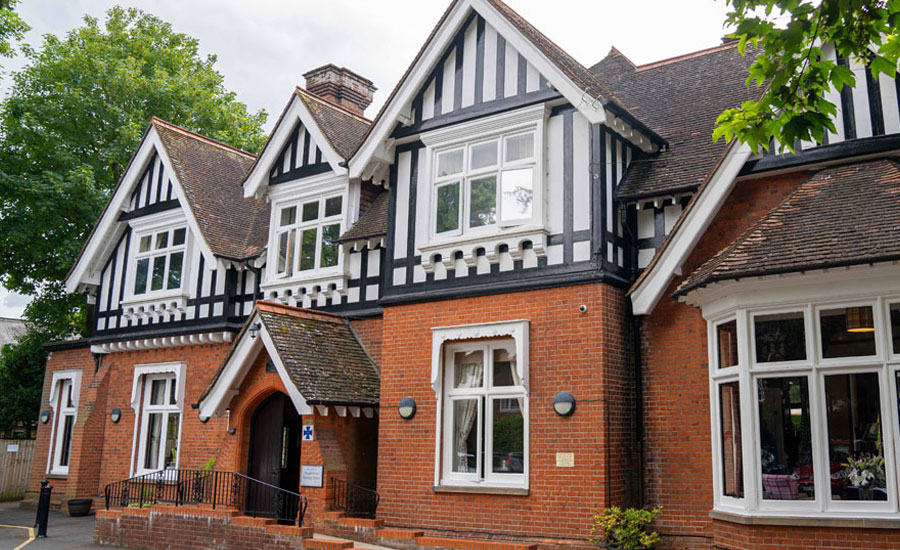Behind the Scenes: How Trained Are the Care Home Staff Looking After Your Loved One?

When you choose a care home for your loved one, you’re putting a huge amount of trust in the people who will be looking after them. But have you ever wondered what kind of training those staff members receive? How prepared are they to handle emergencies, provide care with dignity or support someone with complex needs like dementia?
This article will take a closer look at why staff training is so important in care homes, what it involves and how it impacts the quality of care your loved one receives.
Why is Staff Training Important in Care Homes?
Staff training is essential in care homes because it ensures residents receive safe, high-quality care personalised to what they need. Properly trained staff can handle emergencies, prevent accidents and provide compassionate, person-centred support. Training also equips carers to work well with residents with dementia, promote dignity and respect and build trust with families. Continuous learning keeps care standards high, improves the well-being of residents and creates a more supportive environment.
What Training Do Care Home Staff Receive?
The staff in care homes undergo various types of training to ensure they can provide high-quality, compassionate care. Here’s a look at the key areas staff are trained in:
Keeping Everyone Safe
From basic first aid to infection control, carers are trained to create a safe environment for residents. Whether it’s safely moving someone or preventing illness from spreading, these are core skills essential for everyone’s well-being.
Medication Know-How
Medications are a lifeline, but they need to be handled with care. Staff learn how to give the right medications at the right time, follow strict safety protocols and spot any potential side effects – all to keep residents healthy and safe.
Protecting Dignity
All staff are trained in safeguarding, like spotting and responding to signs of neglect, abuse or mistreatment. It’s all about ensuring residents feel respected, protected and valued at all times.
Communicating with Care
While caring is about physical support, it’s also about emotional needs like building relationships. Staff are trained to really connect with residents, whether it’s through clear communication, understanding nonverbal cues or simply being there to listen.
Supporting Complex Needs
Residents with dementia, mobility issues or mental health challenges need specialised care. Care home staff learn practical techniques for offering personalised support – calming a resident with dementia or helping someone stay comfortably active despite mobility challenges.
Handling Emergencies Calmly
From falls to medical crises, emergencies happen. Staff are trained to stay calm, act quickly and ensure residents get the care they need without delay. They’re ready for anything.
Care Home Training for Complex Needs
Residents in care homes don’t all have the exact needs, and specialised training makes all the difference. Staff are trained to go beyond the basics, gaining skills to provide personalised, compassionate care to those with more complex requirements. For residents with dementia, staff learn how to manage memory loss, respond calmly to challenging behaviours and create safe, familiar environments. This type of care usually involves routines or music to ease agitation, allowing residents to feel more secure.
Mental health training equips carers to support residents dealing with loneliness, anxiety or depression. By recognising the signs of emotional struggles and offering meaningful engagement, carers can ensure residents feel heard and valued. Similarly, end-of-life care training focuses on providing physical comfort and emotional support with dignity, helping residents and their families during an incredibly sensitive time.
For residents with physical challenges or limited mobility, staff are taught safe movement techniques to prevent falls and encourage gentle activity, helping individuals maintain independence and confidence. Nutrition training is also key, ensuring meals meet dietary needs, whether managing allergies or supporting those with swallowing difficulties, so residents enjoy food that’s safe, nourishing and enjoyable.
Ultimately, specialised training helps staff provide person-centred care. By understanding each resident’s requirements and adapting their approach, care staff make sure that everyone feels respected, supported and able to thrive.
Why Ongoing Training Is Essential in Care Homes
Care doesn’t stand still and neither should the training for those providing it. Ongoing education is essential in care homes to ensure staff stay updated, confident and equipped to meet the ever-changing needs of residents.
So, why does continuous training matter?
Staff constantly face new challenges, from advances in care techniques to responding to emerging health concerns like infection control in a post-pandemic world. Regular training keeps them prepared for these changes, ensuring they deliver safe, effective care no matter the circumstances.
Ongoing education also enhances the quality of life for residents. When staff learn updated techniques or specialised approaches, like new ways to engage residents with dementia or better strategies for handling mobility issues, it directly benefits the people they care for.
Beyond skills, continuous learning builds confidence. Knowing they’re armed with the latest knowledge helps staff feel empowered to handle complex situations calmly and professionally. This, in turn, creates trust and reassurance for residents and their families, knowing that care is constantly evolving to meet the highest standards.
Care homes that invest in ongoing training are improving individual skills while creating a culture of learning, growth and accountability. This culture ensures that staff remain motivated, residents feel supported and families can rest easy knowing their loved ones are in capable hands.
The Backbone of Quality Care
Well-trained staff are the foundation of every great care home. Training ensures residents feel safe, respected and supported, from handling emergencies to providing personalised care. By being aware of staff training, families can make more informed decisions and feel confident that their loved ones are in the best possible hands at all times.
Ready to explore...
